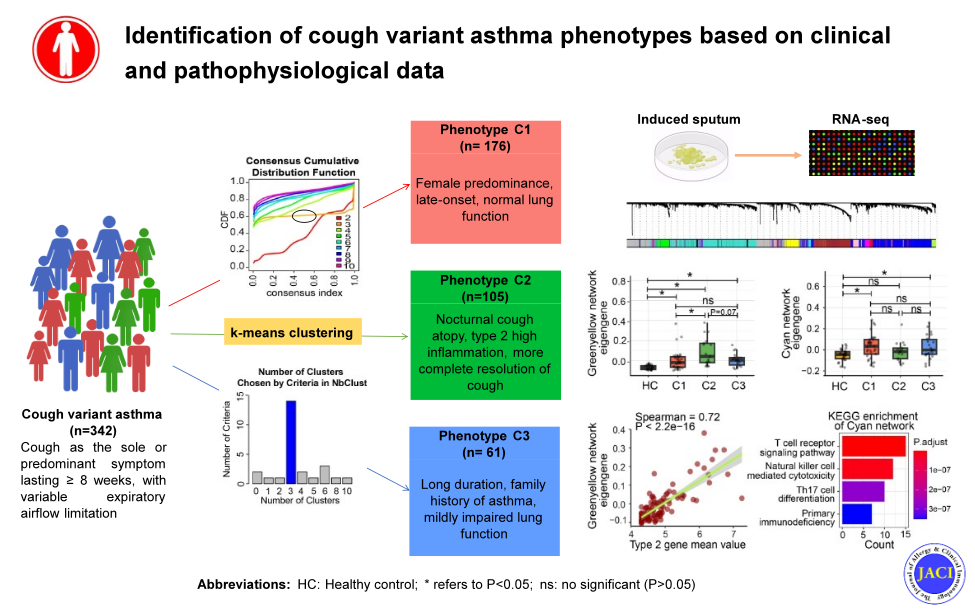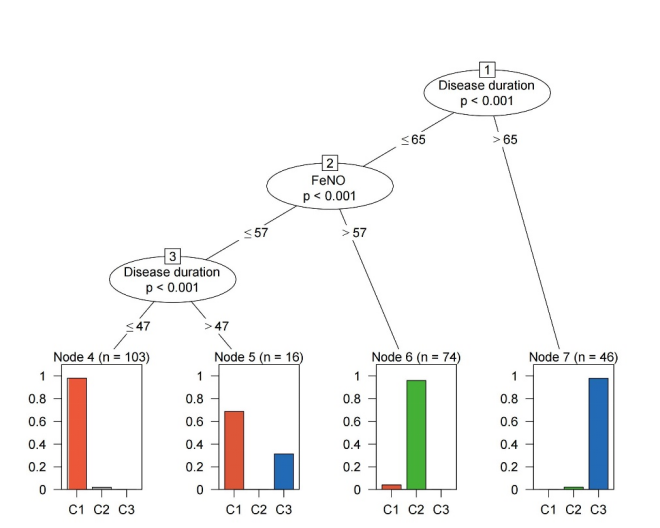A National Multi-center Research on Cough Variant Asthma’s Phenotypes in China Published in JACI
2023-05-203070A national multi-center research paper on cough variant asthma phenotypes led by Professor Lai Kefang’s team with SKLRD has recently been published online in Journal of Allergy and Clinical Immunology (IF: 14.29), with the title of “Identification of cough variant asthma phenotypes based on clinical and pathophysiological data”. The paper was also recommended by the chief editor and will be highlighted in the Latest Research section of the official website of the American Academy of Allergy, Asthma and Immunology.

Cough variant asthma(CVA) is an atypical asthma with cough as the predominant or sole symptom, with bronchial hyperresponsiveness (BHR). According to a national multi-center study in China, about one third of chronic cough cases in China are caused by cough variant asthma. It has been found in clinical practice that cough variant asthma shows heterogeneity against asthma treatment response. Some patients have reported good treatment effects, while some have reported poor treatment effect or proneness to relapse. Therefore, observing the clinical and airway inflammation characteristics and prognosis of cough variant asthma and exploring its clinical phenotypes are helpful in the evaluation of cough variant asthma and the determination of treatment strategies.
In this study, 342 cases of newly diagnosed patients with CVA were included for asthma treatment and follow-up visits for 6 months. Changes in cough symptoms, lung function and airway inflammation were evaluated in each follow-up period, and biological samples were kept for omics testing to explore the potential mechanisms. Cluster analysis of 10 important clinical and pathophysiological parameters was carried out, such as age of onset, disease duration,cough visual analog scale(VAS), blood eosinophil count, fractional exhaled nitric oxide (FeNO), and pulmonary ventilation function index. It was found that cough variant asthma can be divided into three phenotypes: C1 phenotype was characterized by female predominance, late-onset disease and normal lung function; The C2 phenotype was characterized by younger, a higher proportion of nocturnal cough, atopy, high type 2 inflammation, and more complete resolution of cough (73.3%); The C3 phenotype was characterized by the longest disease duration, the highest proportion of family history of asthma, and mildly impaired lung function and less complete resolution of cough. Induced sputum transcriptomic analysis discovered that patients with C2 phenotype showed high levels of T2 type inflammatory co-expressed gene networks. In addition to the rise in type 2 inflammatory co-expression gene network, the Th 17 immune co-expression gene network was also up-regulated in patients with C1 and C3 phenotypes.

In addition, the study used clinical baseline data for a conditional inference tree analysis, and found that the duration and FeNO could be used to better distinguish the three phenotypes, which helped to easily distinguish cough variant asthma phenotypes in clinical practice.

The results of this study indicate that different phenotypes of cough variant asthma show different clinical characteristics, therapeutic response and inflammatory immune mechanisms, which can guide the individualized clinical treatment of cough variant asthma.
















